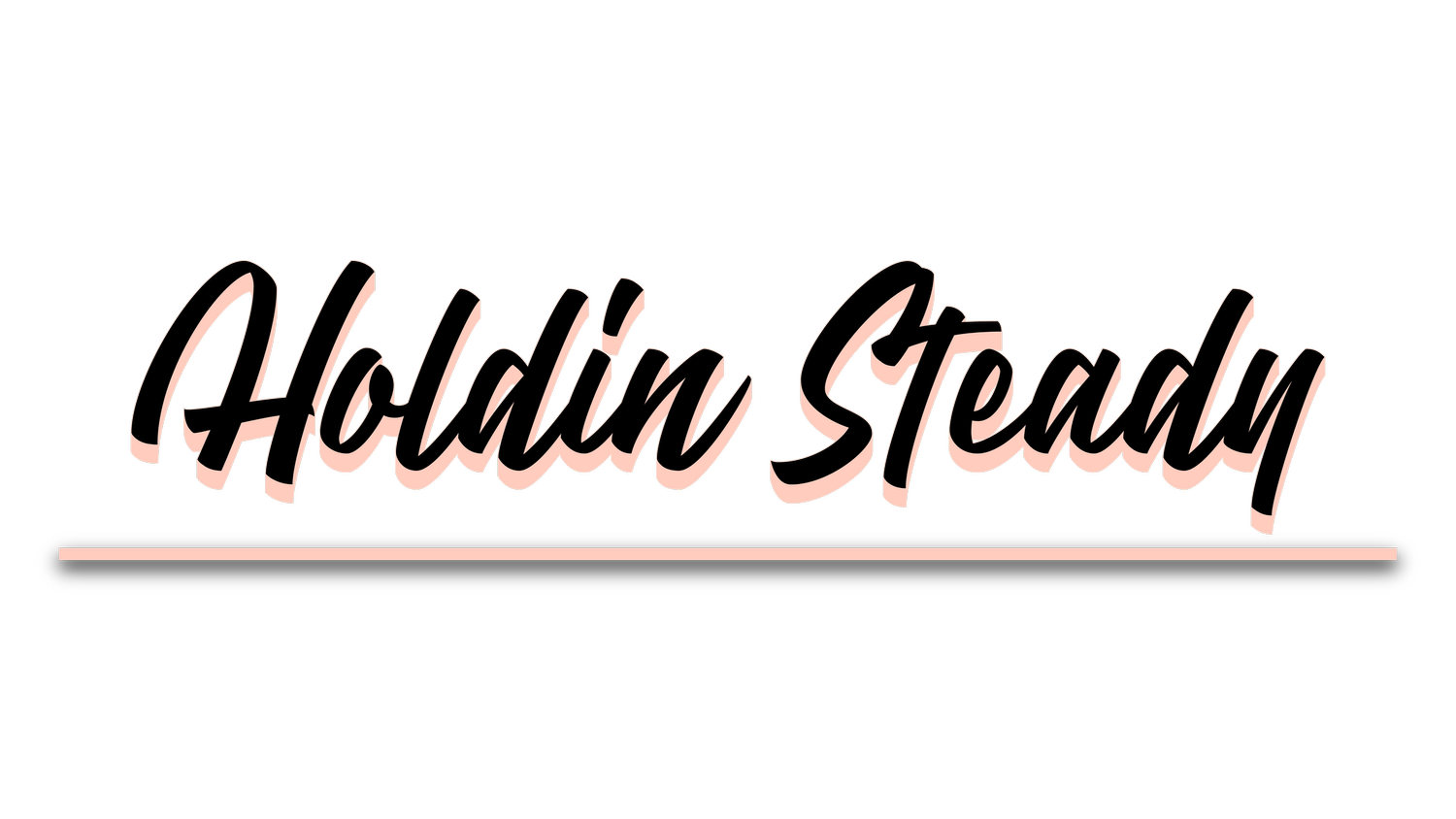Feeling Stuck? Take a Step Back
In today's relentlessly fast-paced world, it's easy to feel overwhelmed, burned out, and utterly stuck. The constant influx of information, the pressure to perform, and the ever-blurring boundaries between work and personal life can make us feel like hamsters on a never-ending wheel. We're so consumed by the daily grind that we lose sight of the bigger picture—our long-term goals, our values, and ultimately, ourselves.
But what if the key to breaking free and regaining control isn’t pushing harder—but actually stepping back?
Table of Contents
Why Taking a Step Back Can Move You Forward
The Modern Malaise: Why So Many of Us Are Feeling Stuck
Information Overload
The Cult of Busyness
Burnout Culture
The Comparison Trap
Lack of Purpose
The Power of Perspective: Why Stepping Back Matters
Practical Steps to Take a Step Back
Benefits of Taking a Step Back
When Is It Time to Step Back?
The Long-Term Strategy: Living with Intention
In Closing: The Courage to Pause
Next Steps: What You Can Do Today
Why Taking a Step Back Can Move You Forward
This isn’t about quitting or avoiding responsibility. It’s about intentionally creating space for reflection, gaining clarity, and realigning with what truly matters. It’s a strategic pause—a mindful retreat that helps you re-engage with renewed energy, purpose, and direction.
The Modern Malaise: Why So Many of Us Are Feeling Stuck
Before diving into how to take a step back effectively, it’s important to understand the root causes behind this widespread sense of inertia and burnout:
1. Information Overload
We're constantly bombarded with content from social media, emails, news alerts, and apps. This nonstop input overwhelms our cognitive bandwidth, leading to decision fatigue, anxiety, and a persistent feeling of mental clutter.
Think of it as trying to drink from a firehose—too much, too fast, and ultimately paralyzing. And apparently they don’t recommend it.
2. The Cult of Busyness
In today’s hustle culture, busyness is often mistaken for productivity or success. We wear exhaustion like a badge of honor. But constant motion without intention is a recipe for burnout and emotional detachment.
3. Burnout Culture
The glorification of overwork leads to physical, emotional, and mental exhaustion. According to the World Health Organization, burnout is now recognized as an occupational phenomenon, and it's more prevalent than ever.
4. The Comparison Trap
Social media feeds us highlight reels of others' lives, fueling self-doubt, inadequacy, and unrealistic expectations. This constant comparison can create a distorted view of success and lead to chronic dissatisfaction.
5. Lack of Purpose
Many people pursue goals based on societal norms rather than personal values. This misalignment results in a lack of fulfillment and the feeling of drifting aimlessly.
The Power of Perspective: Why Stepping Back Matters
Taking a step back creates the mental and emotional space needed for clarity and personal insight. Here’s how it helps:
Re-Evaluate Your Goals
Ask yourself: Are your goals still aligned with your current values, interests, and life stage? Real growth happens when your pursuits resonate with your purpose.
Identify Harmful Patterns
From procrastination to toxic environments, stepping back allows you to recognize the habits or influences that may be holding you back.
Prioritize What Matters
When you're in reactive mode, everything feels urgent. Stepping back helps you differentiate between what's important and what's merely loud.
Reduce Stress and Anxiety
Detaching from the noise—even briefly—can restore a sense of calm, improve mood, and support mental clarity.
Enhance Creativity and Problem-Solving
Distance from a problem often leads to better, more innovative solutions. Creative breakthroughs thrive in mental whitespace.
Practical Steps to Take a Step Back
You don’t need to disappear into the mountains for a month (unless you want to). Small, consistent actions can make a big difference. Here’s how to start:
1. Schedule Unstructured Time
Block out downtime on your calendar just like any important meeting. Even 15–30 minutes of intentional rest each day can reset your brain.
2. Practice a Digital Detox
Designate periods each day to unplug from screens. Even an hour offline can help you reconnect with yourself and reduce information overload.
3. Try Mindfulness Techniques
Meditation, deep breathing, or yoga can center your thoughts, reduce stress, and improve self-awareness. Apps like Calm or Insight Timer are great tools for beginners.
4. Get into Nature
Time outdoors isn’t just relaxing—it’s healing. Studies show that nature exposure improves mood, reduces cortisol, and boosts focus.
5. Keep a Journal
Journaling helps you process emotions, uncover patterns, and clarify thoughts. Ask yourself: What’s working? What isn’t? What do I need more or less of right now?
6. Seek an Outside Perspective
Talk to someone you trust—a coach, mentor, or close friend. A fresh viewpoint can reveal blind spots and offer encouragement.
7. Break Your Routine
Try something new. Take a different route to work, start a new hobby, or rearrange your workspace. Novelty can disrupt monotony and re-energize your mind.
8. Delegate and Automate
Stop trying to do everything. Delegate where possible, and explore tools that automate repetitive tasks—like scheduling, reminders, or inbox filtering.
Benefits of Taking a Step Back
When practiced intentionally, taking a step back leads to lasting improvements in well-being and performance:
✅ Increased mental clarity
✅ Reduced stress and anxiety
✅ Improved focus and decision-making
✅ Enhanced creativity and innovation
✅ Greater self-awareness
✅ Stronger, more meaningful relationships
✅ Higher productivity with less effort
When Is It Time to Step Back?
You may need to pause if you're experiencing:
🔁 Chronic overwhelm or burnout
🧭 Lack of motivation or direction
⚖️ Difficulty making decisions
🚫 Repetitive, negative thought patterns
💬 Feelings of disconnection from self or others
⏳ Life transitions or big changes
The Long-Term Strategy: Living with Intention
Taking a step back isn’t a one-time event—it’s a lifestyle habit. Building in moments of reflection and perspective helps you live a more intentional, balanced, and fulfilling life. Over time, you’ll experience:
1. Prevention of Burnout
By checking in with yourself regularly, you’ll spot warning signs before they spiral into crisis.
2. Greater Resilience
Life will always throw curveballs, but with a clear mind and solid foundation, you’ll bounce back faster and stronger.
3. Purpose-Driven Living
You’ll stay connected to your why—allowing you to pursue goals that truly matter to you.
4. Deeper Human Connections
When you're present with yourself, you're better able to show up for others—friends, family, colleagues, and community.
5. Continuous Personal Growth
Stepping back fosters curiosity and self-discovery, empowering you to grow and evolve consciously.
In Closing: The Courage to Pause
In a world that demands constant hustle and noise, choosing to step back is a revolutionary act. It’s a commitment to your mental health, emotional well-being, and overall happiness. The next time you feel stuck, overwhelmed, or uninspired, remember: clarity often comes in stillness, not motion.
Take a breath. Zoom out. Reconnect with what truly matters.
Next Steps: What You Can Do Today
Ready to take your first step toward greater clarity and balance?
📅 Schedule 15 minutes of uninterrupted downtime. Treat it as non-negotiable.
🧠 Pinpoint one area where you feel stuck. What’s one small action you can take today?
🤝 Share this article with someone who could use a reminder to pause and reflect.
Want more tips on overcoming burnout and living intentionally?
Subscribe to our newsletter or follow us on [Instagram] and [LinkedIn] for regular inspiration on mindset, well-being, and personal growth.


